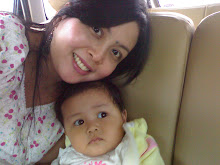Start planning early
| Planning for pregnancy and antenatal care is the most important factor in growing a healthy baby, says Peter Gluckman, Professor of Pediatric and Prenatal Biology at the Crucial decisions about babies’ futures are made before birth, explains Professor Gluckman, and what happens in the womb during pregnancy can have an impact on later life and even lead to a greater risk of disease. “People have to remember their baby’s environment is determined by the mother’s behavior, she is the incubator.”
|
To grow a healthy baby
|

No comments:
Post a Comment